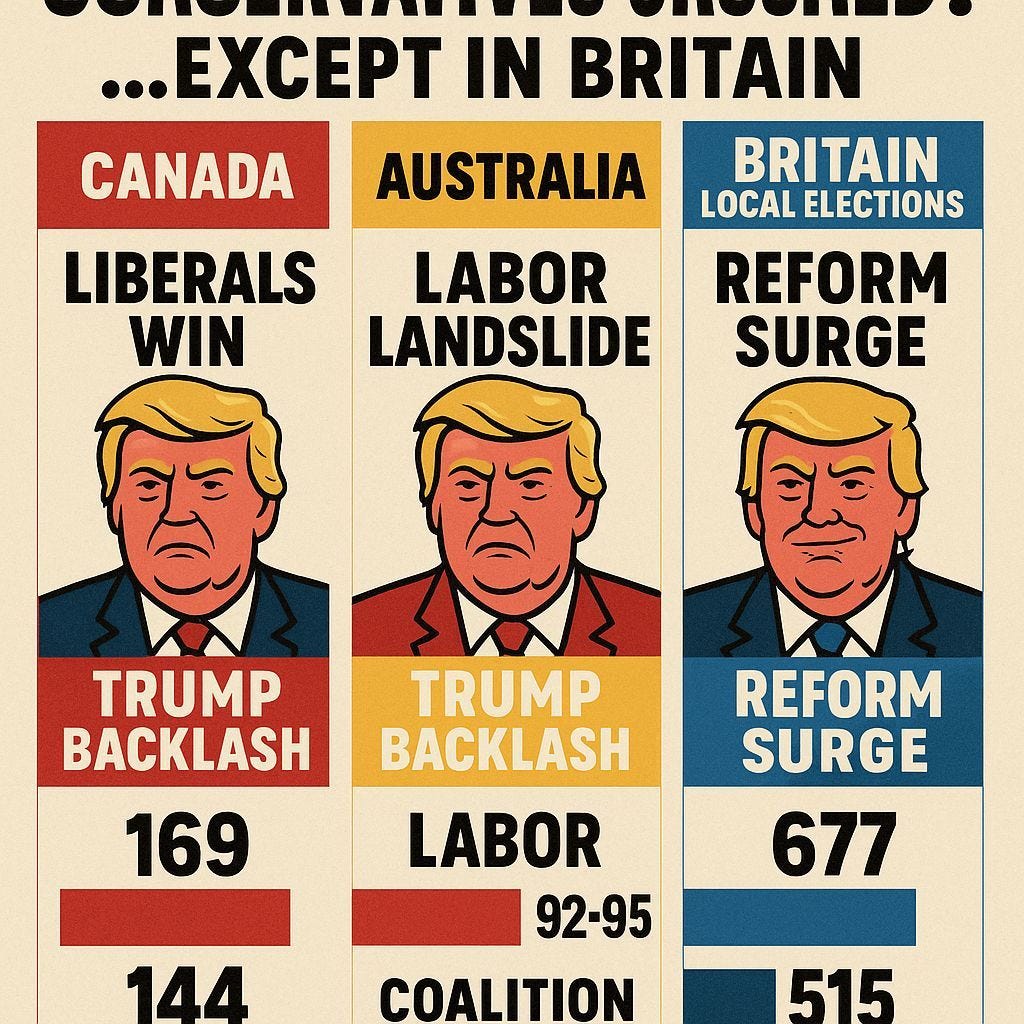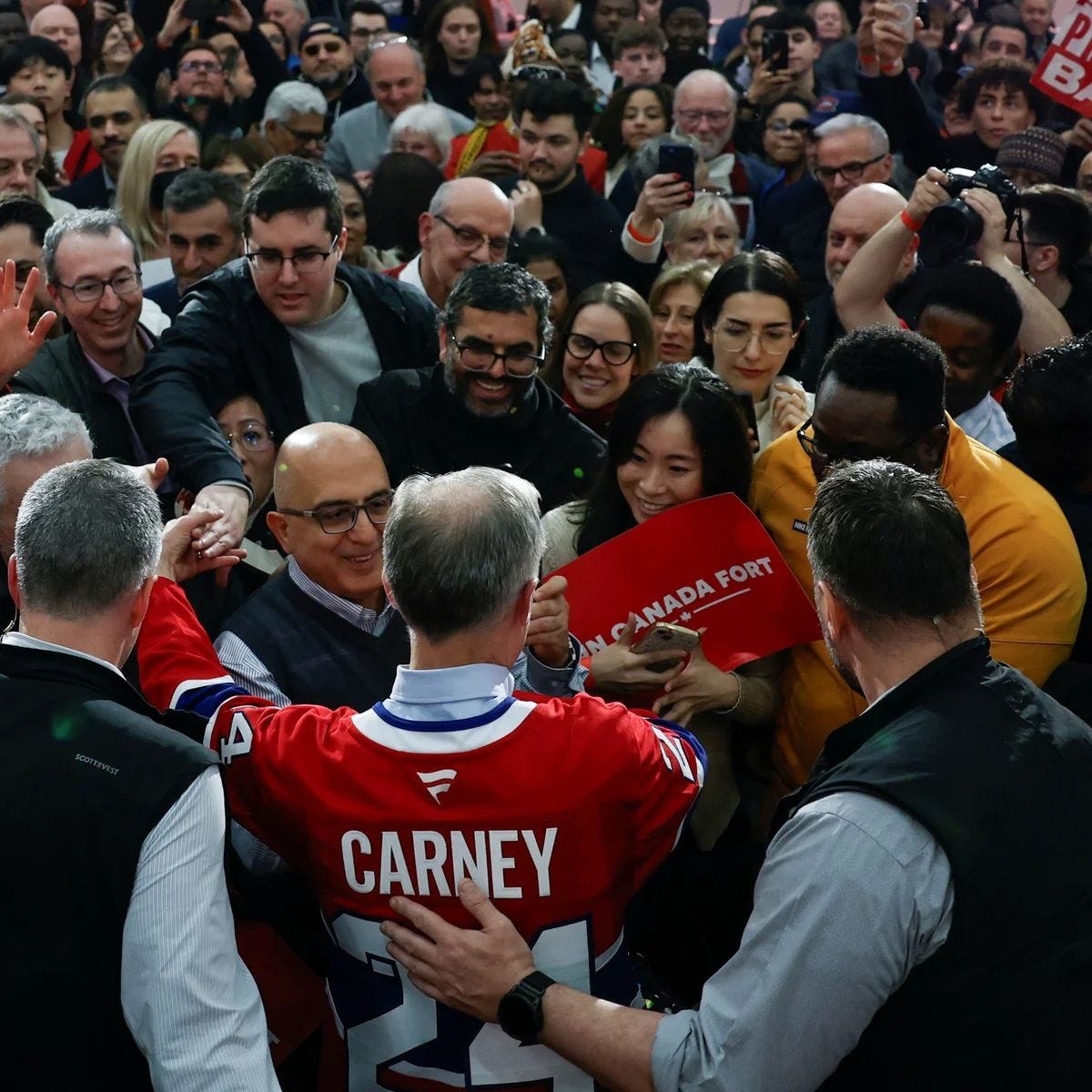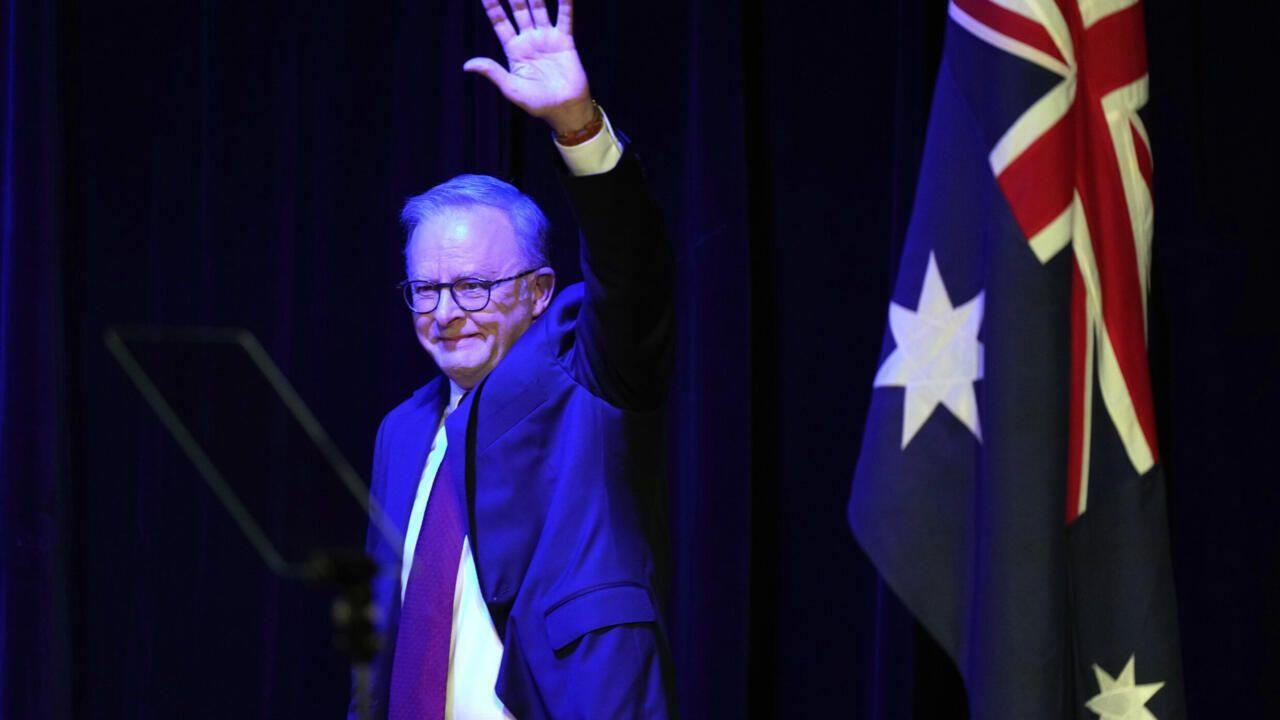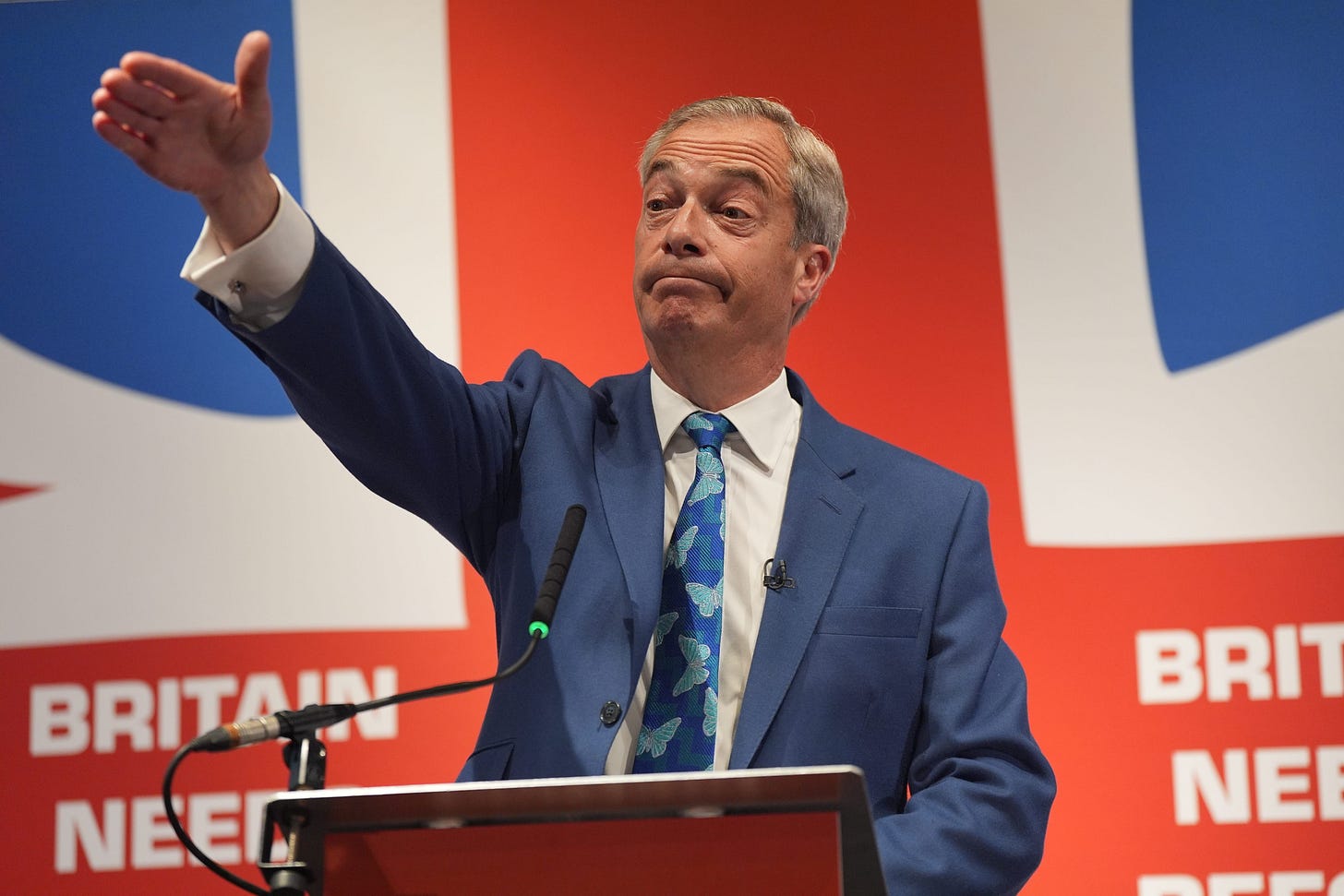The Trump Effect: Pushing America Right and the World... Left?
In the grand theatre of global politics, 2025 has delivered a plot twist worthy of Shakespeare - if Shakespeare had a penchant for red hats, spray tans and tweets written entirely in all caps.
As elections unfolded across Canada, Australia, and the United Kingdom, the spectre of Donald Trump loomed large, casting a shadow that proved either a curse or a blessing, depending on which side of the aisle people occupied and how many diet cokes they drank.
The Anti-Trump Wave That Wasn't (Entirely)
Remember when political pundits confidently declared that Trump's return to the White House would trigger a global rightward lurch? Well, those predictions aged about as well as milk left on a Mar-a-Lago patio in August.
In Canada, Mark Carney's Liberals pulled off what analysts called "one of the widest rebounds on record in any democracy," snatching victory from the jaws of defeat. Just months earlier, polls had the Conservatives cruising toward a landslide. But then something peculiar happened: Trump launched his trade war, threatening America's northern neighbour with tariffs and vague allusions to "annexation" that sent Canadians frantically googling, "Can I build an igloo on the moon?".
"Vote for us," the Liberals essentially said, "because we're not those guys who remind you of that guy." And Canadians, eyeing the chaos south of their border, nodded in collective agreement. The Conservative leader Pierre Poilievre even lost his own seat - a humiliation eerily mirrored weeks later in Australia.
Down under, Anthony Albanese's Labor Party defied political gravity by increasing its majority - the first Australian government to do so after a first term since World War II. The Liberal Party's Peter Dutton had spent months adopting Trump-adjacent policies, including a promise to create an Australian version of Trump's Department of Government Efficiency ("DOGE"), and campaigning on culture war issues. One Liberal senator even used the phrase "make Australia great again," apparently missing the memo that originality matters in politics.
As Trump's tariffs threatened Australian exports and his erratic foreign policy raised eyebrows across the Pacific, voters looked at Dutton's rightward lurch and decisively said "no thanks." with the polite firmness of someone declining their third Vegemite sandwich. Like his Canadian counterpart, Dutton too lost his own seat. It's almost as if voters were sending a message written in electoral neon: "We've seen this show before, and we're not buying tickets to the sequel." Or at least not until we all see Trump's egg breaking leading to reduced inflation and soaring stock indexes. Oh wait...
In both Canada and Australia, the Trump effect didn’t just hurt the conservatives, it actively rescued struggling incumbents who had been widely expected to suffer from midterm malaise. The Trump brand of bombast and grievance politics proved wildly out of sync with the understated pragmatism voters were craving.
But Wait - The UK Plot Twist
Just when this narrative seemed comfortably established - Trump pushes America right, the rest of world recoils left - the United Kingdom decided to complicate matters.
In early May's local elections, Nigel Farage's Reform UK party stormed to victory, winning a parliamentary by-election by a nail-biting six votes, claiming two mayoralties, and taking control of several councils. The party placed first overall, with an unprecedented 41% of available seats. Meanwhile, both Labour and the Conservatives suffered historic losses.
So why didn't the anti-Trump effect manifest in Britain? Several theories present themselves.
First, Farage - despite being a long-time Trump supporter - carefully distanced himself from some of the American president's more controversial positions. Recognising that Trump's tariffs and Ukraine policies were unpopular with British voters, he strategically avoided embracing them. Unlike his counterparts in Canada and Australia, Farage understood that selective Trumpism sells better than the wholesale variety. Plus, getting kneecapped on X by Musk might have boosted Farage with every non-Tesla obsessed driver in the UK.
Second, the UK local elections were primarily a protest vote against establishment parties in traditionally conservative areas. Labour, despite its landslide general election victory just months earlier, had implemented unpopular policies like cutting winter fuel payments for the elderly - a move about as popular as suggesting Buckingham Palace be converted into a Trump-branded mini-golf course. Even though, on second thought, that might actually not be such a bad idea. The Conservatives, still reeling from their 2024 electoral collapse, offered no compelling alternative stumbling around the political landscape with all the direction and purpose of a roomba with a drinking problem.
Into this vacuum stepped Reform UK, offering voters a way to express discontent without crossing the psychological barrier of voting for their traditional opponents. It was like choosing to eat at Burger King when you're mad at McDonald's, even though you know deep down it's pretty much the same thing with slightly different packaging.
Third, Britain's electoral system is in flux. For the first time in modern history, the combined Labour-Conservative vote share fell below 50%, signalling a fracturing of the traditional two-party system more dramatic than the crack in Liberty Bell. Reform benefited from this fragmentation - the average winning party's vote share was just 40.7%, meaning three in five voters didn't support the winning candidate in their ward. Democracy: where you can be deeply unpopular and still win! (Trump nods vigorously.)
Reform UK didn’t so much mimic Trump as localise him: anti-immigration, anti-“Westminster elite,” and full-throated in its appeals to national identity and working-class grievances. It was a textbook case of the UK electorate following America’s populist mood swings, this time by delivering a shock local mandate for Farage’s insurgents.
The Freedom of the Press Paradox
One common thread emerges when examining these electoral outcomes: voters seem increasingly allergic to politicians who threaten democratic institutions and norms, breaking out in democratic hives at the mere suggestion of undermining the press. Trump's attacks on journalism, his "anti-woke" agenda (which appears to mean staying asleep to actual problems), and his authoritarian tendencies appear to be serving as cautionary tales for electorates elsewhere, like a political version of those graphic anti-smoking ads.
In both Canada and Australia, conservative politicians who aped Trump's rhetoric about "hate media" or borrowed his culture war playbook found themselves rejected by voters who had a front-row seat to the American experiment. It's like watching someone get food poisoning from the shrimp cocktail at a buffet and then deciding maybe you'll go with the salad instead. The implicit message seemed to be: "We've watched what happens when you go down that road, and we'd rather not, thanks. Also, we prefer our democracy without a side of autocracy."
Even in the UK, where Reform UK succeeded, Farage was careful to present a more palatable version of populism - one that maintained just enough distance from Trump's most controversial positions to avoid triggering the same immunological response. It's populism with a monocle and a cup of tea rather than a red hat and a hamburger.
The Global Political Immune System
Perhaps what we're witnessing is a kind of political immune response, which is far more effective than the human immune system since it doesn't involve actually catching the disease first. Like a body that develops antibodies after exposure to a virus, democracies that observe Trump's America up close are developing resistance to his particular brand of politics faster than a teenager develops resistance to parental advice.
This doesn't mean these countries are immune to populism or right-wing policies - clearly they're not, just as being immune to measles doesn't protect you from chicken pox or that weird rash you got at your cousin's destination wedding. Or wild poisonous mushrooms hiding in plain sight in the suburbs of Victoria. But they seem increasingly capable of distinguishing between conservative governance and authoritarianism-lite, like a wine connoisseur who can tell the difference between a fine cabernet and grape juice that's been left in the sun too long.
Voters appear willing to support the former while rejecting the latter with the discretion of someone swiping left on a dating app when they see a profile pic featuring a dead fish or a bathroom mirror selfie.
As Trump pushes America further right, he may be inadvertently inoculating other democracies against his most extreme tendencies, like a vaccine made from pure ego and spray tan. The irony is almost Shakespearean: in his quest to "Make America Great Again," he might be making other countries more resistant to precisely the political movement he champions. It's like trying to sell ice to Eskimos and accidentally teaching them to build air conditioners instead.
Of course, this theory has its limits - as the UK results demonstrate. But even there, Reform UK's success came when it strategically distanced itself from Trump's most controversial positions, like someone claiming to love pizza while carefully picking off all the toppings.
The Final Act Still Unwritten
As we navigate the rest of 2025, the interplay between Trump's America and the world's democracies will continue to evolve with all the predictability of a cat on a keyboard. Will more countries shift leftward in reaction to American politics? Will populist parties learn to modulate their Trumpism to avoid triggering voter antibodies? Or will entirely new political configurations emerge, perhaps involving sentient AI running for office on a platform of "at least I'm not human"?
The only certainty is uncertainty - and perhaps the knowledge that in politics, as in Shakespeare, the most entertaining developments are often the least expected, like finding out the villain was actually wearing a mask the whole time, except in Trump's case, it's just another layer of bronzer.
Trump may have written the script for American populism, but the rest of the world is busy creating its own adaptations, some faithful to the original, others decidedly not - like when Hollywood remakes foreign films but adds explosions and a questionable love interest. I guess though if Trump's new tariff-driven, made in America only model works then we all know which way it is likely to go - bye bye Starmer!
In this global political theatre, Trump remains centre stage in America, hogging the spotlight and occasionally forgetting his lines. But for now, the rest of the world seems to be deciding that while his performance makes for compelling viewing - like a car crash involving clowns - they'd rather not bring the show to their own countries. Unless, of course, it's a carefully edited version with the most controversial scenes left on the cutting room floor, along with most of the orange makeup and all of the covfefe. Or, if their economies are so stuffed that anything will look better - particularly one that includes a star spangled banner like in the latest Bob Dylan remake.
Keep up to date with The Letts Journal’s latest news stories and posts at our website and on twitter.







Love this! I’m Harrison, an ex fine dining line cook. My stack "The Secret Ingredient" adapts hit restaurant recipes (mostly NYC and L.A.) for easy home cooking.
check us out:
https://thesecretingredient.substack.com